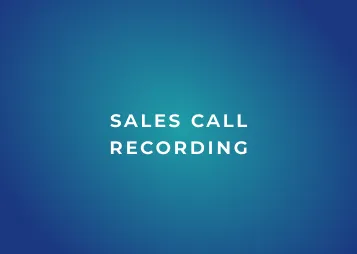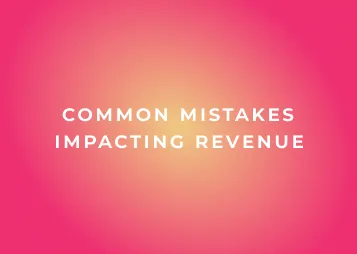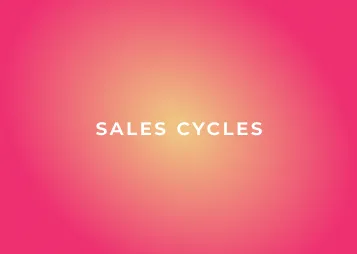So you're about to start recording your sales team's calls for the first time. Likely, you’ve been on a journey already with this initiative.
You've realized why it's important.
You've procured the right call recording software.
You've got your exec team sign off.
You're excited to start seeing the benefits of sales coaching.
But it’s crucial to remember that your team are just on Day One of their journey in recording sales calls. And you want to get this off on the right foot.
From my years of experience implementing call recording in sales teams, and seeing the benefits it brings with conversation and revenue intelligence, here are the three things I think are important in getting your call recording initiative off to the off to a right start.
Understanding resistance to call recording
So let's start with this idea of resistance. You know that any change can cause a level of uncertainty in your team.
You're always going to have your champions, those people that jump on board, that get the vision of it. But you're also going to get your detractors, the people that will find it difficult. Equally, you’re going to have few fence sitters, the people that sit between the two - quite happy to be pulled between whichever group pulls them hardest.
The question you need to ask as a manager is: why would your team find this idea of call recording difficult?
This is your sales team after all. They live in the most visible area of the business. Everyone knows what their performance is like, at the end of a month or quarter. Their efforts and their performance are visible, almost as a leaderboard. But the consequence of the leaderboard world we live in in sales is it creates a very status-driven environment. Status means that everyone knows where we land, everyone knows our spot, we know where we sit amongst our teammates.
Are we an under-performer, a reliable contributor or top-performing sales rep? Where do we sit in the leaderboard?
Status is very personal to us. It's something we either want to protect or it's something that we want to grow. And any change to our team and how we operate can signal a risk to our status. The author David Rock suggests that risk to our status can make us feel threatened and cause us to feel anxious or worried.
And this anxiety lies at the crux of this resistance.
What might a top-performing sales rep think when they hear, we're going to start call recording? They might think “I don't need this kind of micro-management. I'm senior, I know what I'm doing.” They might feel like it belittles their status.
What might a reliable contributor think? Well, they might think “Am I going to get found out for not being as good as what people might think I am? All my weaknesses are going to be on show”. They might feel like it threatens or weakens their status.
What might one of your under-performers think? They might think “Is this going to be the change that costs me my job?” That's the ultimate threat to status, losing their job entirely.
So a really good place to start is to have an understanding that everyone is going to react differently. And it doesn't matter their seniority or their length in the business or how good they are, everyone reacts differently to the change and everyone's going to want to feel seen and heard.
And that includes your champions. Your champions are a really strong group that you should use when you're rolling out anything new. From getting them involved in the decision and in what tech you actually buy, to getting everything set up and ready to roll out.
Launch messaging
There are four stages to the messaging:
- Why
- Benefits to your reps
- Benefits to the whole business
- Removing that threat to status
Stage 1: Why
Whatever you do, please don't launch call recording with your sales team by saying, “we're going to start recording your sales calls”. Because that will only throw wobbles and you'll have some people that immediately start to think “Oh my gosh, that sounds scary!”. If you're lost for how else to introduce the idea, try this:
“We're committed to your development and see an opportunity to begin coaching our sales calls to improve results. We've invested in a tool that will help us recognize your strengths and help you identify where you can improve. To increase your win rate by recording and analyzing the whole team's sales activity.”
There are some key ingredients in this message that make it what it is. Firstly, it's supportive, we're committed, we're invested. As your leaders, as your managers, this is us doing this for you.
It's a positive opportunity, to improve strength, increase wins. It's got positive language. It's centered around ownership. This is about you. It's giving you the tools you need to be great. It's about your development, it's about your strengths, it's about your win rate.
And finally, it's united, it's inclusive. We're committed, it's our sales calls we've invested, it's our whole team making everyone feel united and that they're in it together.
So whether you are verbalising your new initiative, or you are writing it out and sending a message, just take those extra few minutes just to carefully think through how it’s coming across. Even better - get someone to read it through for the first time. Is it giving people the right impression and giving them that feel-good factor you want to launch your new initiative?
Stage 2: Benefits to reps
The first is it's going to reduce their admin time and sales team, your sales team hate doing admin. But now their calls are being recorded - everything's going to be transcribed. So they haven't got to waste time taking notes and recording notes. They can instead pay extra attention to listening to their prospect on the phone.
They've got proof of what was sold. How many times have we heard “Sales have said this was sold! Sales have sold something that we haven't got!” It's often a miscommunication on the customer side. But now you've got recorded evidence of what was said and that can be used to your advantage.
It also improves the client handover process. You know all that great knowledge that you've got in that sales process, all of those customer challenges and the goals all recorded there. You can hand them onto your CSMs so they can feel really prepared and knowledgeable going into their first meetings with the new client.
It's going to improve your sales reps' meeting preparation because they can go back, listen to a call before they go into the next one and be better prepared, have a better plan, and better success.
And then finally it is going to enable your team to self-coach. And they should understand that and they should understand the benefits of that. Our data shows that reps who listen back to three to four hours of sales calls per month, have a 5.5% higher win rate than those that don't self coach. That's incredible. It gives them the power to grow, to own their own development.
Stage 3: Benefits to the wider business
Everyone in the business is going to benefit from more sales revenue, more money, more opportunity, but it goes beyond that. Let's talk about the feedback loop. Often you’ll hear something on a sales call and want to get that message back to the product team or to customer success.
Now you can easily share that knowledge with the rest of the team.
Whether it’s which feature you should build next or how do we get our messaging right - the feedback loop has improved. Any decisions made are going to be better connected to your customer. So there is a fantastic amount of business benefits to recording the sales team's calls and sharing them with the business as well. And it really elevates the position of sales reps and helps the rest of the business understand what it takes for them to do a really great job on the front lines.
Stage 4: Remove that threat to status
So the first thing we want to do is normalize any worry and the best way you can do that is by having someone that's got some senior status within the team who is really championing the idea.
Get them to share what they might be worrying about. Maybe it’s llistening back to their calls, worrying about hearing their own voice. Whatever their concerns are, if reps see someone in their team, maybe more senior to them or someone that appears confident about a change, share something they're worried about, it can really normalize that fear amongst everybody else.
The second thing is about recognizing strengths, really enforcing that this change is about recognizing and seeing people for what they are great at, as much as it is about improvement. And as David Rock tells us, recognizing strengths is a great way of making people feel they've got a better status or improving their feeling around status.
Finally, the best way to remove any issue around status is to remove anyone else from the game. What I mean is making sure people understand that this is about them as an individual. It's about their journey that they're going on. It's going to be about each individual and what they need, it's about them running their own race. That's a great way of minimizing any issue around success status.
Driving engagement post-launch
The most important thing we do after we've launched anything is continuing that conversation with your team. Making sure that you continue to recognize how your champions are embracing it, and continue to talk to anyone that's struggling with it or resisting it in any way.
Three things I like to talk through are:
- Experience
- Questions
- Ideas
Firstly, what's your experience been like so far? Ask your team individually, and be careful not to put the positive leading on that question, which goes like: “What's your experience been like so far? Good?” Don't do that. “What's your experience been like so far?” Leave it open. And welcome every response because you want to hear them.
Next ask: “What questions have come up for you?”. Crucially, this question is not “Have any questions come up for you?” because have can prompt as brush off “No, no, I'm fine”. Asking “What questions have come up for you?” signals that you expect and welcome questions.
Finally here, getting people's input and their ideas is the best way to take someone off the sidelines from an idea and getting them right in the heart of any change. So it's brilliant to include anyone's ideas, even if it's just listening to them and talking about them.
In the first 30 days or so after you've launched, you're going to talk through experience, questions and ideas with your team. Do that collectively and in your 1-2-1s. Then after about the first month or so, you should find that your new initiative is well embedded and everyone is really embracing the change. Everyone at the end of this will feel like they've been understood. Everyone's going to feel seen because you've talked to them, you're communicating about it, you're hearing their feedback and input, and they're going to feel included. Any ideas they've got, you're going to listen and they're going to feel like they're part of the change. I hope that's been helpful.
Good luck with your rollout. If you've got any questions about it at all, please get in touch with me. I'd love to talk to you about it.
Working with an anxious team?Check out my guide on 6 steps to overcome and cope with anxiety in sales.
Shelley Lavery is the CRO and Co-Founder of Jiminny, the leading conversation intelligence and sales coaching platform that helps companies maximize their revenue. With over a decade of experience in coaching B2B sales teams, Shelley was previously Group SVP of Sales at Reward Gateway now leading the conversation intelligence discussion with expertise and insight.





.webp)






